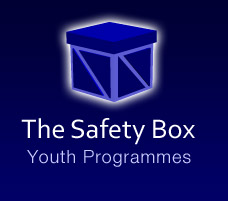Advice and Tips for encountering Stop and Search
Stop and Search affects more people than we think, and it continues to be a source of anxiety,anguish and people being targeted because of their ethnic background. When you are stopped and searched, many emotions run through your mind. Worry, confusion, fear and defense. These are rightful emotions to experience in such a situation. Knowing not only how Stop and Search works, but to also know how to answer when you are stopped and searched, helps you to feel at ease and helps you stay aware of what your rights are in such a situation.
Stop and question: police powers
A police officer might stop you and ask:
what your name is
what you’re doing in the area
where you’re going
You don’t have to stop or answer any questions. If you don’t and there’s no other reason to suspect you, then this alone can’t be used as a reason to search or arrest you.
Stop and search: police powers
A police officer has powers to stop and search you if they have ‘reasonable grounds’ to suspect you’re carrying:
illegal drugs
a weapon
stolen property
something which could be used to commit a crime, such as a crowbar
You can only be stopped and searched without reasonable grounds if it has been approved by a senior police officer. This can happen if it is suspected that:
serious violence could take place
you’re carrying a weapon or have used one
you’re in a specific location or area
Before you’re searched
Before you’re searched the police officer must tell you:
their name and police station
what they expect to find, for example drugs
the reason they want to search you, for example if it looks like you’re hiding something
why they are legally allowed to search you
that you can have a record of the search and if this isn’t possible at the time, how you can get a copy
Removing clothing: police powers
A police officer can ask you to take off your coat, jacket or gloves.
The police might ask you to take off other clothes and anything you’re wearing for religious reasons - for example a veil or turban. If they do, they must take you somewhere out of public view.
If the officer wants to remove more than a jacket and gloves they must be the same sex as you.
Being searched doesn’t mean you’re being arrested.
The police arrest procedure
If you’re arrested the police must:
identify themselves as the police
tell you that you’re being arrested
tell you what crime they think you’ve committed
explain why it’s necessary to arrest you
explain to you that you’re not free to leave
If you’re under 18 the police should only arrest you at school if it’s unavoidable, and they must inform your headteacher.
The police must also contact your parents, guardian or carer as soon as possible after your arrival at the police station.
Police powers to use reasonable force
If you try to escape or become violent, the police can use ‘reasonable force’, for example holding you down so you cannot run off.
You can also be handcuffed.
The police have powers to search you when you’re arrested.




